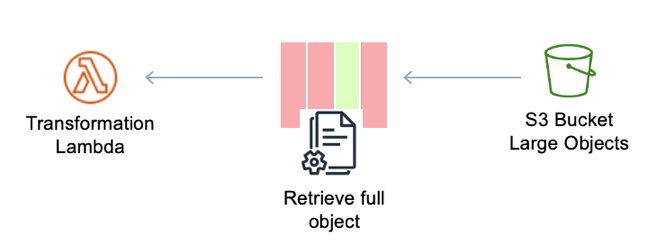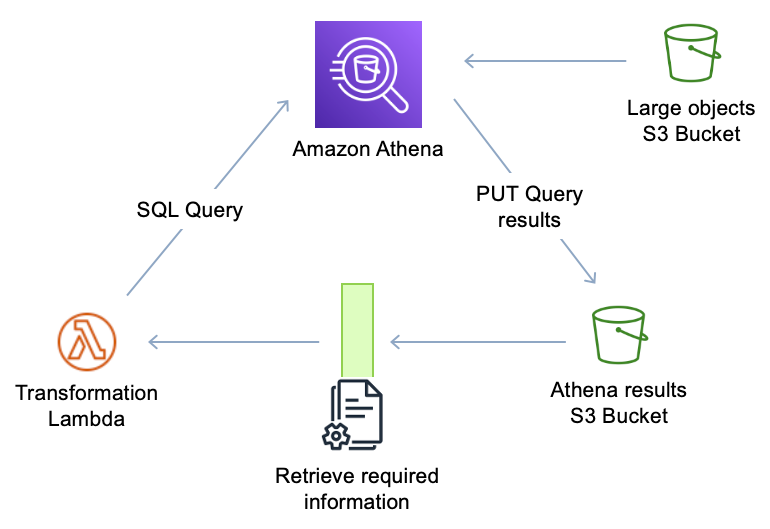Code optimization
As covered in the performance pillar, optimizing your serverless application can effectively improve the value it produces per execution.
The use of global variables to maintain connections to your data stores or other
services and resources will increase performance and reduce execution time, which also
reduces the cost. Moreover consider connection pooling with Amazon RDS Proxy
An example where the use of managed service features can improve the value per execution is retrieving and filtering objects from Amazon S3, since fetching large objects from Amazon S3 requires higher memory for Lambda functions.

Figure 46: Lambda function retrieving full S3 object
The previous diagram shows that when retrieving large objects from Amazon S3, we might increase the memory consumption of the Lambda, increase the execution (so the function can transform, iterate, or collect required data) and, in some cases, only part of this information is needed.
This is represented with three columns in red (data not required) and one column in green (data required). Using Athena SQL queries to gather granular information needed for your execution reduces the retrieval time and object size upon which to perform transformations.

Figure 47: Lambda with Athena object retrieval
The next diagram shows that by querying Athena to get the specific data, we reduce the size of the object retrieved and, as an extra benefit, we can reuse that content since Athena saves its query results in an S3 bucket and invokes the Lambda invocation as the results land in Amazon S3 asynchronously.
A similar approach could be using S3 Select, which enables applications to retrieve only a subset of data from an object by using simple SQL expressions. As in the previous example with Athena, retrieving a smaller object from Amazon S3 reduces execution time and the memory used by the Lambda function.
Table: Lambda performance statistics using Amazon S3 vs S3 Select
|
200 seconds |
95 seconds |
|---|---|
|
|